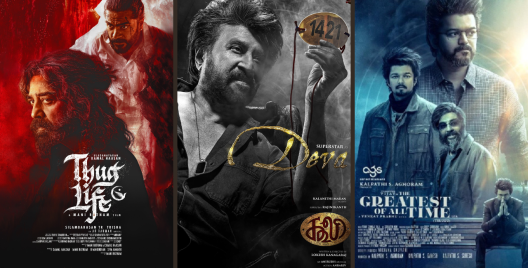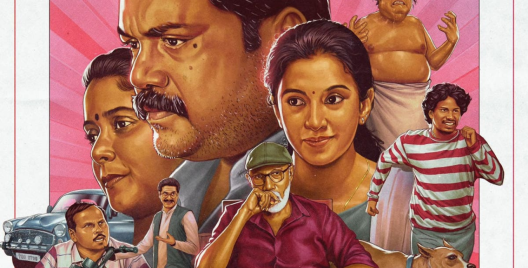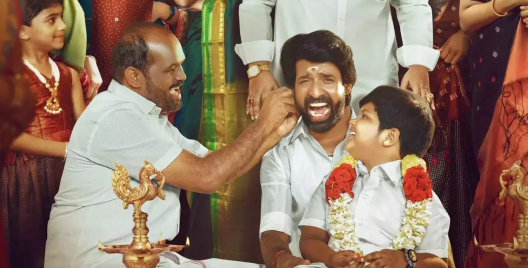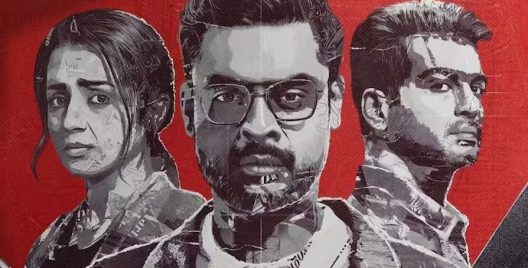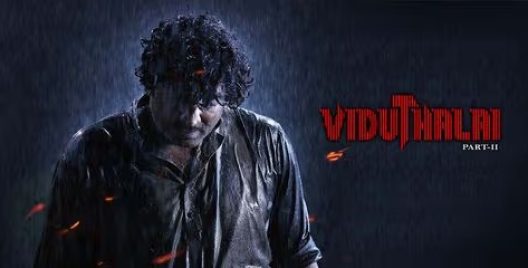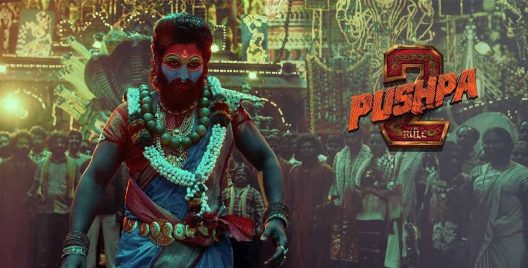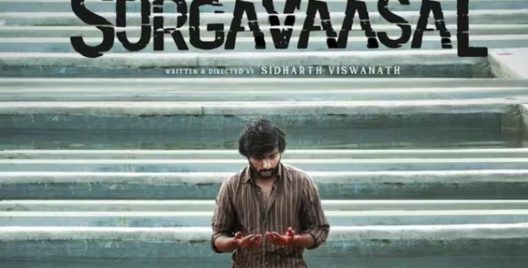(Halitha has been working on this film for eight years. Having shot the school sequences with a few kids in 2015, she waited for the kids to grow up to film the present, set in the Himalayas.)
Even as the leads Sabari (Pravin Kishore) and Praveena (Esther Anil) go on a trip to the Himalayas, Halitha Shameem doesn’t limit the story just to this duo. Besides the scenic landscapes that shine through the lens of Manoj Paramahamsa, the director also helps us meet the locals, understand the lifestyle of such riders, and learn about the political situation. This method makes the world of Minmini seem more realistic. Yet even when you’re mesmerised by the beautiful mountains and travel with Sabari and Praveena for quite some time, you never really see the characters for who they are.
At the age of 15, schoolmates Sabari and Praveena go through different life-changing obstacles. And they cross paths, eight years later, on a trip to the Himalayas. While Praveena has come to terms with her new life, Sabari is still struggling to find his lost self. Sadly, this is more apparent on paper than on screen. Halitha’s characters wear their vulnerability on their sleeves and represent the feeblest versions of us. And Sabari is no different – he’s leading a life where he’s breathing but not fully alive, and there’s a deeply affecting reason for it. So, no doubt that the idea behind Minmini is soulful. However, the screenplay lacks the emotional depth that a sensitive story like this demands.

The school portions do not have a narrator and the audience becomes a fly on the wall, witnessing the story unfold. So, when a grown-up Praveena assumes the role of a storyteller in the latter half (set in the Himalayas), it creates a certain inconsistency – it suddenly becomes her story. If Praveena’s oversharing is a problem, you rarely get time to understand a grown-up Sabari. An introvert, Sabari is skilled at masking his emotions and when the film doesn’t attempt to show things from his perspective, we fail to get a grasp of what he’s feeling. Probably, if we had got the chance to see Minmini’s world through the eyes of Sabari, we would’ve not just heard but felt and understood his emotional struggles.
The editing choices too rob us of certain moments that would’ve offered depth to the central relationship. For instance, when Praveena’s mobile phone suddenly falls into a river, the makers cut immediately to the next sequence where she’s seen smiling. In between these two cuts, Sabari has done something special and we learn about it only much later. This complex editing pattern affects the beauty of this moment. Another crucial detail in the film too gets lost in a similar way, and is explained too late in the film. In an attempt to not spell out things, it seems like Halitha leaves it to the audience to fix the missing puzzles albeit without all the needed information.
Halitha usually takes life’s mundane things and paints them in striking shades. You can see that in the sprightly first half of Minmini too. Set in a boarding school in Ooty, she lets two teenagers with different personalities and dreams bond over their differences. However, this aspect is absent in the second half. For instance, the first time Sabari offers to travel along with Praveena during their trip is not because he likes her. Neither does he want to be her friend. But he wants to be a protector and ensure a woman is safe. “When you meet some more friends, we’ll part ways. Until then, I’ll come with you for your safety,” Sabari tells Praveena. The fact that such a stereotyped, male savior trope is used by a female writer like Halitha is disappointing. Sabari and Praveena continue to travel together and talk a lot – about stars, butterflies, solar energy, and more – but things never appear personal. It also seems like the younger Pravin Kishore and Esther Anil had more to act, emote, and react than their grown-up versions did.
You can see the soulful story Halitha set out to narrate, it’s nothing like the ones we’ve seen before. The characters are overwhelmed by unexplainable emotions and their journey is in search of something intangible, maybe a sense of self, life or even redemption. In the first half, which Halitha shot with the kids in 2015, the writing shoulders the film. The eight-year shift is seamless too – the actors, just like our characters, are now grown adults; the past happens in Ooty, and the present in the Himalayas – and you don’t see anything glaringly different. But there’s something that’s missing: the spark in the writing that makes you root for the characters.
Rating – 2/5




